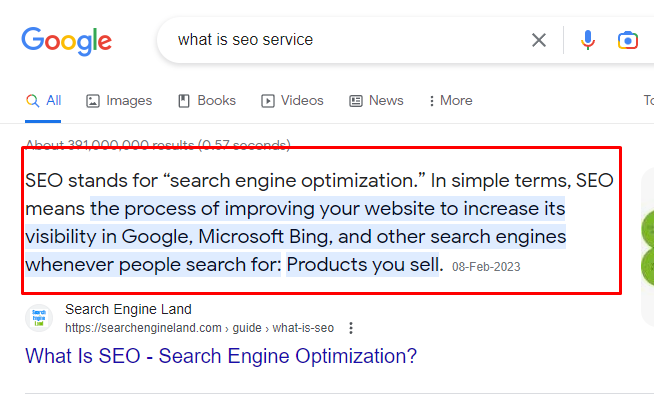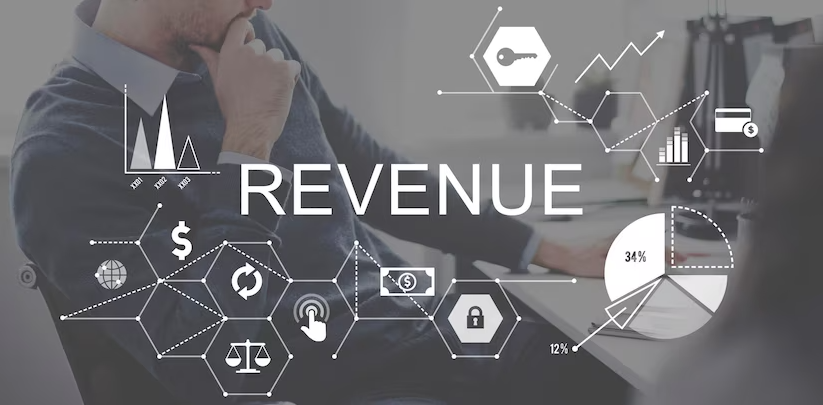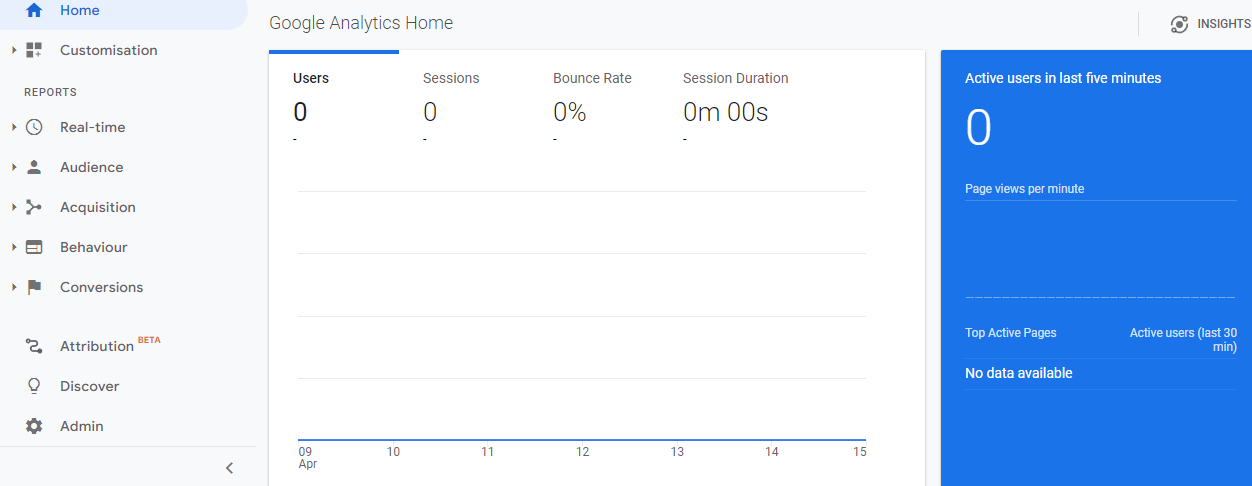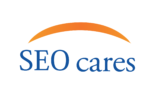It is important to measure SEO success when you are struggling with your SEO strategy and don’t know where your website stands in terms of achieving its SEO goals.
In this article, we will explore different methods and tools for measuring SEO effectiveness and success.
Setting SEO Goals and Objectives
Setting clear goals and objectives is crucial to measure SEO success.
Business objectives should be aligned with SEO goals to ensure that SEO efforts support overall business goals.
SMART objectives should be set, which are Specific, Measurable, Achievable, Relevant, and Time-bound.
Specific goals may include increasing organic traffic by a certain percentage, improving keyword rankings for target keywords, or increasing conversion rates.
When setting goals for SEO, make sure they can be measured and tracked over time.
Make sure the goals are achievable based on the resources and capabilities available.
Ensure the goals are relevant to the overall business objectives.

Keyword Rankings
Tracking organic keyword ranking is an essential aspect of any successful SEO strategy. When you planned your SEO strategy, you picked the best keywords for your target audience.
To measure your website’s performance, search those keywords on Google and see where your website appears in comparison to your competitors.
The higher you rank on the first page of search results, the more visitors your site is likely to get.
Tracking your website’s ranking will help you to identify areas for improvement and adjust your SEO strategy accordingly.
To see if your SEO strategy is successful you can use tools like Ahrefs and SEMrush to track your keyword rankings over time.

Google Search Features
In 2023, ranking on the Google search results page alone is no longer enough.
To achieve maximum traffic, it is essential to optimize your website for other Google search features as well.
Check the following Google search result features to ensure that your website is optimized for multiple search features.
Featured Snippets:
Featured Snippets is a highlighted summary of an answer to a search query that appears at the top of the search results page.

Knowledge Panel:
The knowledge Panel is a box that appears on the right side of the search results page and contains information about a person, place, or thing.

Image Pack:
Image Pack is a grouping of images that appear at the top of the search results page.
The Local Pack:
The Local Pack is a box that appears on the search results page containing a map and a list of nearby businesses related to the search query.

Reviews/Rating snippets:
Reviews & Rating snippets is a feature that displays a summary of ratings and reviews for a product or service within the search results page.

People Also Ask:
People Also Ask is a list of related questions that appear on the search results page.

Videos:
A section of the search results page featuring videos related to the search query.

Check Impressions
Another way to track your SEO performance is by measuring impressions.
An impression is when your website shows up in search results for a user’s search query.
While getting a high ranking in search results is important, the main goal is to get noticed by users.
Impressions can help you understand how effective your keywords are.
If you have a high ranking but a low number of impressions, it could mean the keyword you are using is not very popular, and you may want to focus on other keywords instead.
You can track various impression metrics to better understand your position in search results, such as the total number of impressions, and impressions for specific keywords.
You can also check impressions for branded vs. unbranded keywords.
Google Search Console can help monitor impressions, but you may need to collect data manually for certain sets of keywords.
Remember: If you are getting a high number of impressions but a low number of clicks, you should focus on click-through-rate (CTR) optimization.

CTR (Click-Though-Rate)
Your click-through rate (CTR) is the percentage of users who click on your site after seeing it on the first page of search results.
If your website provides useful information, your CTR will improve over time.
Your CTR and keyword ranking are linked, and a higher ranking means a better chance of increasing your CTR.
Here are a few tips to improve your webpage CTR:
- Write a Relevant and catchy meta title
- Write a Clear meta description
- Use relevant keywords in the title
- Use structured data markup to enhance your search results
- Optimize for featured snippets
- Use Eye-catching images
- Optimize your website’s loading speed
- Use Internal linking
Organic Traffic
Organic traffic refers to website visitors who find your site through non-paid search engine results.
In other words, they discover your website by typing relevant keywords into a search engine and clicking on one of the results.
If your content is optimized for specific keywords, like “healthy smoothie recipes” it can increase traffic to your site.
Google Analytics can tell you where your visitors are coming from and help you target those sources to generate more traffic.

Quality of Traffic
Assessing the quality of website traffic is important, and there are several metrics available to do this, such as Pages Per Visit, Average Visit Duration, and Bounce Rate.
If visitors are not spending much time on your site and leaving quickly, there may be an issue with your website or the type of traffic your keywords are attracting.
For example, if you are a fitness trainer, targeting the keyword “lose weight fast” may not be the best strategy because it can attract people who are not interested in long-term fitness goals and may not become clients.
Instead, targeting the keyword “personal fitness trainer” can be more effective.
Because people who search for this keyword are likely to be looking for professional fitness training services and are more likely to become clients.
Here are a few things to check to assess the quality of website traffic.
- Bounce Rate
- Pages Per Visit
- Average Visit Duration
- Traffic Sources
- Conversion Rate
- Demographics

Time Duration Spent on Page
When visitors spend more time on your website, it indicates that they find your content interesting and relevant, which increases the chances of converting them into customers.
It increases the chance of generating more revenue.
To track user engagement, use Google Analytics to check the average time spent by visitors on each page.
This data can help identify areas for improvement and optimize your website to encourage visitors to stay longer.
Depth of Scrolling
A scroll depth refers to the distance visitors scroll down on a webpage.
By tracking scroll depth, you can determine if users are reaching crucial content and reading the information you provide.
To increase scroll depth, you can use techniques such as adding images, graphics, and bigger headlines while removing large blocks of text.
The more visually appealing and captivating the page, the more likely visitors will scroll down further.

Returning Visitors
When you have a favorite store that you always visit because you know it offers quality products, it’s the same idea as returning visitors to your website.
If people keep coming back, it’s a good sign that you are doing something right by providing valuable content or services that attract and retain visitors.
If your SEO is good, people can easily find your content when they search for it. If they visit your site and find that it meets their needs, they’ll be more likely to come back again in the future.
Check Your Conversion Rate
Your primary goal should be to convert visitors into customers, even though getting more visibility is beneficial.
To determine how many visitors are completing specific actions like purchasing a product, signing up for a newsletter, or free trial, you should track conversions.
If you have a high conversion rate, it means that your conversion rate optimization (CRO) strategies are working well.
You can monitor your conversion rates through Google Analytics.

Understanding the Role of ROI in SEO Success:
ROI (Return on Investment) is a crucial metric for measuring SEO success.
It helps to determine the effectiveness of SEO efforts in generating revenue and profits.
ROI is calculated by dividing the revenue generated by the cost of SEO efforts.
In order to calculate ROI, it is important to accurately measure the costs associated with SEO efforts, including personnel costs, software costs, and any other costs associated with the SEO campaign.
The ROI metric is important for demonstrating the value of SEO efforts to the business, and for identifying areas where optimization efforts can be improved.
Determining ROI (Return on Investment)
To assess the return on investment (ROI) of your SEO campaign, it’s important to have a system in place that tracks the monetary value of conversions.
However, to get a more accurate depiction of the ROI, it’s important to calculate it based on a customer’s lifetime value rather than just their initial purchase.
Lifetime value refers to the revenue or profit you can generate from a customer throughout their lifetime, including future repeat purchases.
By taking these factors into account, you can better understand the true return you are receiving on your investment.

Analyze Revenue
If you have eCommerce SEO, you can track your organic revenue data to see how much revenue your site generates from organic visits.
Revenue should grow over time, but occasional dips due to seasonality are normal. If there’s an unexplained dip, investigate further into your data.

Tools for Measuring SEO Success:
There are numerous tools available for measuring SEO success.
These tools include:
- Google Analytics
- Google Search Console
- Ahrefs
- SEMrush
- Moz
And many others.
- Google Analytics is a powerful tool for tracking organic traffic, click-through rates, and engagement metrics.
-
Google Search Console is a free tool that provides various insights about your website’s performance on Google, including click-through rates, impressions, and errors.
- Ahrefs and SEMrush are popular tools for monitoring keyword rankings, analyzing backlinks, and conducting competitor research.
- Moz is a popular all-in-one SEO tool that provides a wide range of SEO metrics, including keyword rankings, backlink analysis, and site audits.
These tools provide valuable insights into SEO performance and can help to identify areas where optimization efforts can be improved.
How to Measure SEO in Google Analytics?
You can measure SEO in Google Analytics by using various reports such as:
- Acquisition > All Traffic > Channels:
This report shows you the source of your website traffic, including organic search traffic, which can help you evaluate the effectiveness of your SEO efforts.
- Acquisition > Search Console > Queries:
This report allows you to view the keywords that people used to find your website through Google search. By analyzing the data, you can identify opportunities to optimize your content for specific keywords and improve your SEO strategy.
- Behavior > Site Content > Landing Pages:
This report shows the pages on your website that people first land on. By analyzing the data, you can identify which pages are performing well and which ones need optimization to improve their SEO performance.
- Behavior > Site Search > Search Terms:
his report shows you the keywords that people use when searching within your website. Analyzing the data can help you understand your audience’s search behavior and identify new content opportunities.
- Conversions > Goals > Overview:
This report allows you to track your website’s conversions, such as form submissions or product purchases, which can help you measure the ROI of your SEO efforts.

What is success in SEO?
Success in SEO can mean different things to different businesses, depending on their goals and objectives.
Generally speaking, success in SEO is achieved when a website ranks highly in search engine results pages (SERPs) for relevant keywords and phrases, driving targeted traffic to the site and ultimately increasing conversions and revenue.
However, success in SEO can also be measured by other factors such as improved brand awareness, increased social media engagement, and higher domain authority.
Ultimately, success in SEO is about achieving the desired outcomes that align with a business’s overall marketing and business objectives.
Why is measuring SEO success important?
Measuring SEO success helps you track your progress and determine if your optimization efforts are effective in improving your website’s visibility, traffic, and engagement.
What are some metrics to track when measuring SEO success?
The metrics to track can vary depending on your goals and the tools you are using, but some common ones include organic search traffic, keyword rankings, backlinks, bounce rate, time on site, and conversion rate.
How do I track organic search traffic?
You can track organic search traffic using tools like Google Analytics and Google search console.
These tools allow you to see how many visitors are coming to your website from organic search, which keywords they are using to find your website, and which pages they are landing on.
How do I track keyword rankings?
You can track keyword rankings using tools like SEMrush or Ahrefs, which allow you to see where your website ranks for specific keywords in search engine results pages (SERPs).
How do I track backlinks?
You can track backlinks using tools like Ahrefs or Majestic, which allow you to see the number and quality of websites linking back to your website.
What is KPI in SEO?
KPI stands for Key Performance Indicator, which is a measurable value that helps businesses track progress toward their goals.
In the context of SEO, KPIs are metrics that help measure the success of a website’s search engine optimization efforts.
Some common SEO KPIs include organic traffic, keyword rankings, backlink quality, and conversion rates.
By tracking these KPIs over time, businesses can assess the effectiveness of their SEO strategy and make data-driven decisions to improve their online visibility.
What is bounce rate and why is it important to measure?
Bounce rate is the percentage of visitors who leave your website after only viewing one page.
It’s important to measure because it can indicate whether or not your website is engaging visitors and providing them with the information they are looking for.
What are some best SEO tools:
Here are some best SEO tools:
- Semrush
- Google Analytics
- Google Search Console
- Google Trends
- Ahrefs
- Screaming Frog
- Moz
- Majestic
How do I track the conversion rate?
You can track conversion rates using tools like Google Analytics, which allows you to see how many visitors are taking specific actions on your website, such as filling out a form or making a purchase.
How long does it take to see SEO success?
It can take anywhere from a few weeks to several months to see SEO success.
It depends on the competitiveness of your industry, the keywords you are targeting, and the effectiveness of your optimization efforts.
It’s important to be patient and consistent with your SEO strategy.
What should I do if I am not seeing the SEO results I want?
If you are not seeing the SEO results you want, it may be time to reevaluate your strategy and make adjustments.
Consider working with an experienced SEO professional or conducting a thorough audit of your website and content to identify areas for improvement.


